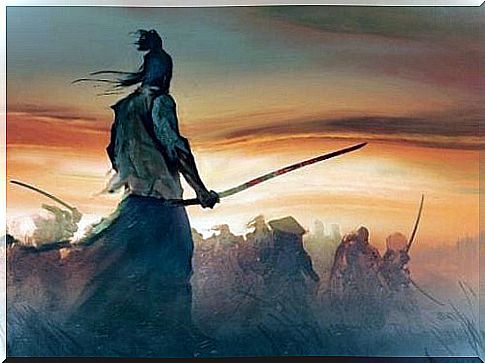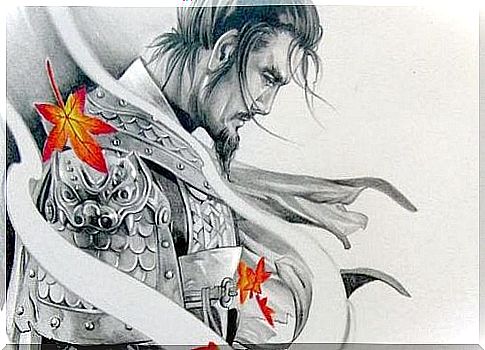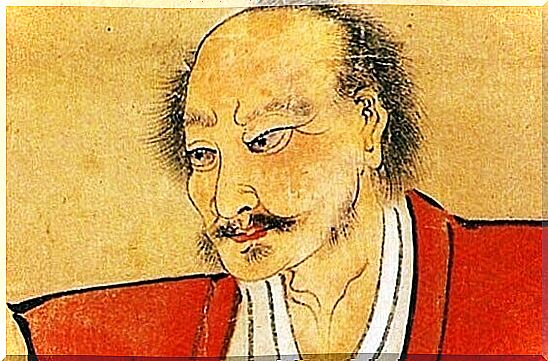The 7 Teachings Of The Warrior’s Path

Japanese culture is millennial and, throughout its history, has placed great value on fighting qualities. The Japanese fighter, unlike those of other countries or continents, must be filled with values to be worthy. The word bushido speaks precisely of this and is translated as the path of the warrior.
This path of the warrior or bushido speaks of an ethical code applied by the samurai. It contains a series of principles but above all seven values which were to govern behavior. It is said to be taught to members of the ruling class from an early age.
The path of the warrior is also known by the code name samurai. Principles of Buddhism are condensed there, as well as principles of Confucianism and other Eastern philosophies. It is, even today, a precious guide to life. Here are the seven virtues and teachings that he offers us.
1. Courage, an essential virtue to be free
According to the path of the warrior, it is only when one has courage that one can be free. It is courage that allows one to live fully, without the bonds imposed by fear. Courage is needed to decide to act and especially to achieve great things.

Courage is not blind daring. True courage must be accompanied by intelligence and strength. There is fear, but we must not let it overcome us. Instead, we must replace it with respect and precaution. This is how true courage will emerge.
2. Courtesy should never be lacking
On the Warrior’s Path, courtesy is not just a set of kind gestures or good manners. In reality, it is a virtue that is closely linked to respect for others, even if they are an enemy.
Courtesy is, above all, respect and consideration for others, whatever the circumstances. It means not to be cruel and not to make unnecessary displays of strength or power. It is a virtue that demonstrates character and great inner strength.
3. Compassion must always be present
The strength and power that one has must be used to do good in others. This is what the path of the warrior signals, which also insists on the enormous value of solidarity. This is a characteristic that enriches strength.
Compassion is not just a feeling: it must also be translated into concrete actions. As soon as you can help someone, you have to do it. And if we do not have the opportunity to help him, we must go in search of this possibility.
4. Justice above all
The way of the warrior says that justice has no halftone. According to this ancient wisdom, justice simply means defining what is correct and differentiating it from what is not. Right things are rewarded and wrong things are punished.
To be righteous means to seek to continually act in a correct manner. It should not depend on what others say but on the person himself. Everyone knows, deep in their heart, what is right and wrong. We just have to follow this light that emanates from ourselves.

5. Loyalty is characteristic of strong and noble minds
What everyone says or does is completely up to him. Therefore, the consequences too. We must therefore have a great sense of responsibility before acting or speaking out.
Loyalty is, above all, loyalty to oneself. The ability to be consistent or consistent. It is also a commitment to the actions we have done and the words we have spoken. Loyalty is peculiar to the strongest and the noblest.
6. The word and sincerity
For the samurai, the word has immense value. We do not speak in order to speak, we do not say in order to say. On the way of the warrior, words are totally equivalent to deeds. When you say something, it’s like you’ve already done it.
In this philosophy, the value of a promise is eliminated. This is not necessary. It suffices to say that we will do something to commit to doing it. This is only possible for those who are completely sincere with themselves and with others.
7. Honor exalts the human being
According to the path of the warrior, the greatest virtue is honor. To be honorable means to act righteously, regardless of the circumstances. Respect your duty and stick to values, regardless of whether others approve of it or not.

Honor is associated with the respect we feel for ourselves. This implies not allowing to fall into unethical or contemptible behavior. Honor is so important in this philosophy that if you lose it, the only way to get it back is to kill yourself.
The most interesting thing about the path of the warrior is that the values he promotes are still alive today, given that it is a very old code of ethics. The world would be very different if in every conflict or confrontation we applied these precious principles of samurai warriors.










